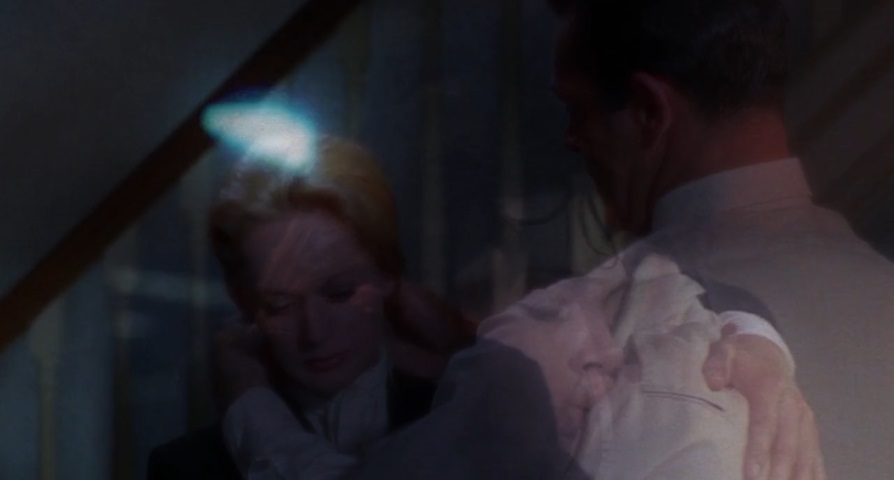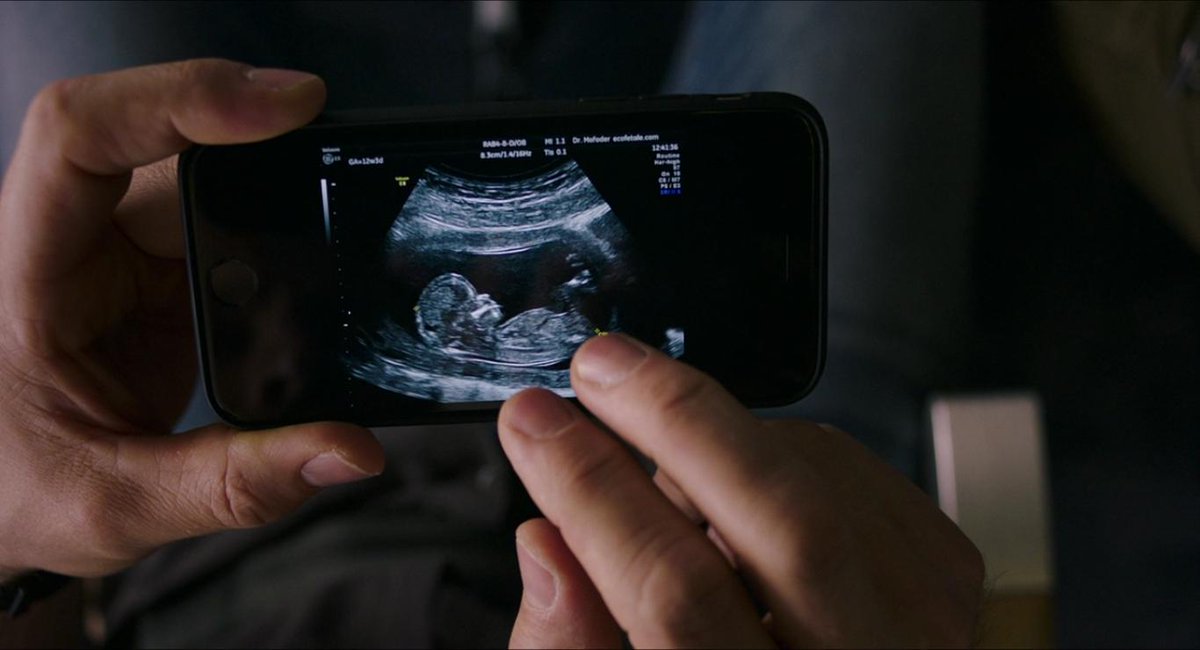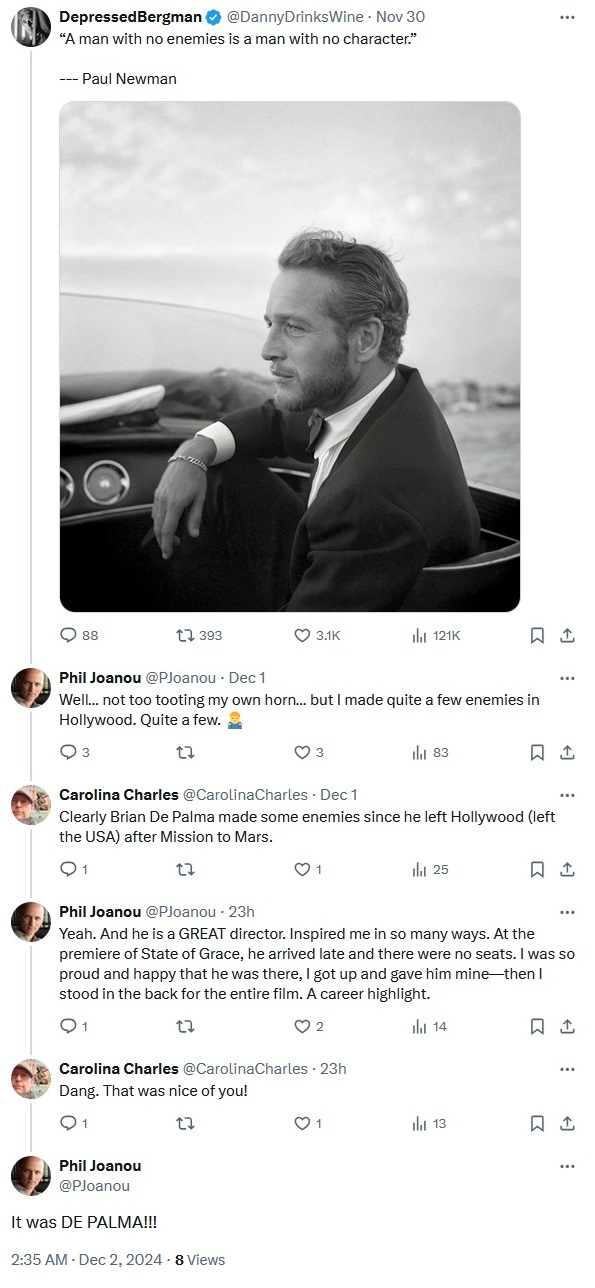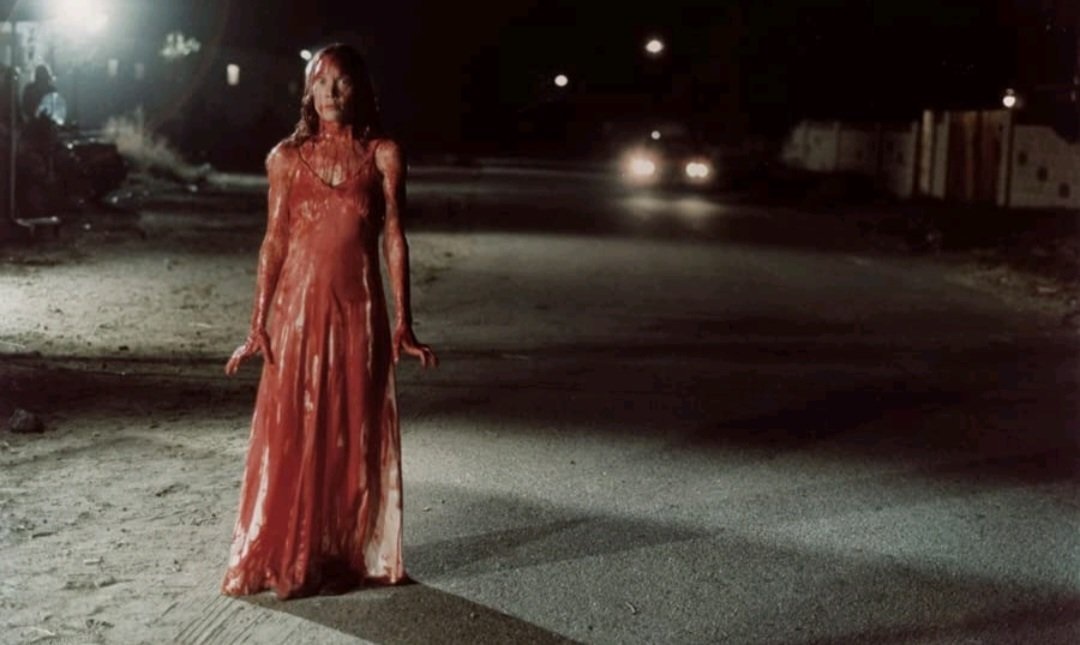In Chu's film, future Wicked Witch Elphaba is an illegitimate child born with green skin and "Carrie"-like telekinetic powers, powers which she uses when the local brats make fun of her color. Elphaba will eventually grow up to be a stalwart and not terribly interesting young woman played by Cynthia Erivo. Erivo is an excellent singer and can certainly belt out the show's bigger numbers with a Broadway baby's aplomb, but her performance otherwise is frustratingly subdued. It's as if she's afraid to show any actual wickedness, anger, joy, or any other emotion beyond intense frustration and mild concern. The same might be said of Ariana Grande (credited in the film as Ariana Grande-Butera for reasons you can read here), who plays Galinda (the future Glinda). Elphaba meets Galinda at Shiz University, presented as a Hogwarts-like school for witches and warlocks (despite it just being the college for all of Oz) where Elphaba's little sister Nessarose (Marissa Bode) has been accepted. Galinda is presented as a vapid, shallow valley-girl-type character, more concerned with fashion and popularity than skill or achievement. Grande, a professional pop star, can likewise hit the high notes, but rarely brings any kind of lifelike expressions to her Beverly-Hills-inflected performance.
Elphaba unwittingly performs a feat of telekinesis in front of Shiz University's headmistress, Madame Morrible (Michelle Yeoh), and the young witch is accepted on the spot, not even having applied. Elphaba and Galinda become roommates, and one might expect the two actresses to downshift into cattiness mode as they discover their mutual loathing for one another. Song lyrics assure the audience that loathing is indeed developing, but I see nothing of that on the lead actresses' faces or in their performances.
Wicked’s greatest dramatic asset, even more so than Schwartz’s score, is Holzman’s brutally efficient book. In crafting the stage musical, which charts Elphaba’s rise from undergraduate outcast at Shiz University to the Most Wanted Witch in Oz, Holzman and Schwartz identified the exact amount of exposition, backstories, and comic asides that they needed to expand a fantasy world and communicate their characters, cutting every second of excess fluff. On stage, Elphaba finishes belting the roof-raising “The Wizard and I,” in which she dreams of becoming famous and being “de-greenified,” and then immediately steps a few feet stage left to launch into a rageful duet, “What Is This Feeling?,” with Glinda. There’s no transition, no perfunctory dialogue—the show just barrels shrewdly from essential moment to essential moment. The film, conversely, takes its sweet time, adding longer scenes between every song, including lots of silly banter for Glinda’s reimagined entourage (Bowen Yang and Bronwyn James), even if there’s almost no changes to the plot. On screen, Wicked feels self-consciously elongated whenever it stretches beyond the musical’s exoskeleton, as if the idea of making a lengthy movie predated the plan for what to do with all the extra minutes. The scene in which Glinda reaches out to Elphaba by mirroring her awkward dance moves at a party can be a tearjerker on stage, but the slow-motion treatment here as the dance goes on and on drains it of emotional energy.
Wicked’s frequent patches of sluggishness are particularly frustrating because so much of the film—especially the songs—is glorious. As in In the Heights, Chu excels at timing shots to match the music precisely, treating Schwartz’s music with an invigorating reverence. When Glinda sings the line, “Of course, I’ll rise above it,” the melody leaps up on the word “rise” and the camera pans upward. Since Chu’s stylistic vigor is essentially playful, Wicked shimmers most distinctively in the comic set pieces, especially “What Is This Feeling?,” choreographed with giddily vicious energy. Much of the broader musical staging, like the ensemble’s dizzying leaps across a series of spinning clock faces in “Dancing Through Life,” is stunning.
Between Oz’s stark, bright colors, the sweeping shots of winged monkeys in flight, and soaring gestures toward the iconography of The Wizard of Oz, Alice Brooks’s cinematography can sometimes offer an exhilarating sensory overload. In the opening sequence, undergirded by newly percussive orchestrations, the camera captures an incandescent rainbow before flying over Dorothy and company making their way across the Yellow Brick Road. Wicked was, perhaps, the last great mega-musical, following in the footsteps of less nimble, more somber shows like Les Misérables and The Phantom of the Opera: Unlike those musicals’ lackluster stage-to-screen adaptations, the world rendered here actually feels huge and wild and full enough to encompass a reality worthy of the largesse suggested on stage.
For devotees looking to see Wicked explode on to the screen, then, Chu’s vision won’t disappoint. Neither will his commitment to ceding several minutes of the film to a series of Broadway cameos that go on for long enough that newcomers to the Wicked-verse may be completely lost. If the utterly campy sequence, which unsubtly pokes fun at a rumored behind-the-scenes feud from 2003, isn’t targeted at casual audiences, the filmmakers are, at least, unapologetic and self-aware in catering to the viewers primed to care the most.
Fortunately, neophyte audiences won’t require any extra knowledge to fully appreciate the freshness blooming from the central performances. Erivo blends her film experience and Broadway bona fides to offer an Elphaba that marries the smallest of gestures—a sweet, inward smile before she launches into her hopeful “The Wizard and I,” for example—with the stadium-sized bravado of her “Defying Gravity.” Though the screenplay’s additions flesh out her character superficially—Elphaba pedantically corrects Glinda’s grammar—Erivo offers a slightly snarky sweetness that makes the role feel unusually layered.
Erivo uniquely takes advantage of all the extra runtime to deepen her characterization, carefully exploring Elphaba’s self-loathing (she blames herself for her mother’s death and her sister’s disability) and the past hurt that fuels her burgeoning activist bent. And the presence of a Black actress in the role reinforces how much Wicked is a barely disguised allegory about skin color and the flammable potency of vilifying the Other for political gain. Erivo actually pushes back against the script’s emphasis on Elphaba’s Carrie-like powers that wreak havoc whenever her emotions get the better of her: She makes Elphaba’s overlooked wit and care and intelligence infinitely more interesting than her magical potential.
Aiding in this redefinition of the character, of course, is the actress’s voice. While Elphabas on Broadway have famously added flamboyant vocal riffs to “The Wizard and I” or “Defying Gravity,” they’ve been constrained by certain stylistic limitations about adapting the score. Erivo seems to have freer rein to shape the role around her own gifts. Especially in the tenderly wistful ballad “I’m Not That Girl,” she weaves liquid melismas into the melody, tendrils of Elphaba’s longing that will surely become a new gold standard for interpreting the song.
If Grande’s fluttery Glinda doesn’t equivalently redefine the role, it’s still an astutely funny, splendidly sung performance. Whenever Grande hits especially high soprano notes, Glinda’s on-screen posse breaks out into applause, perhaps a little meta wink at the naysayers who doubted whether Grande had the vocal chops to sing the role. She not only does, but she’s also refreshingly unafraid to make Glinda quite cruel at the start of the film. Most Wicked castings tend to tilt toward one protagonist or the other—it’s Elphaba’s story or it’s Glinda’s, depending on who’s in the roles—but the pairing here provides a lovely balance, with Holzman and Dana Fox’s extended script giving them both, at least, extra room to grow.













